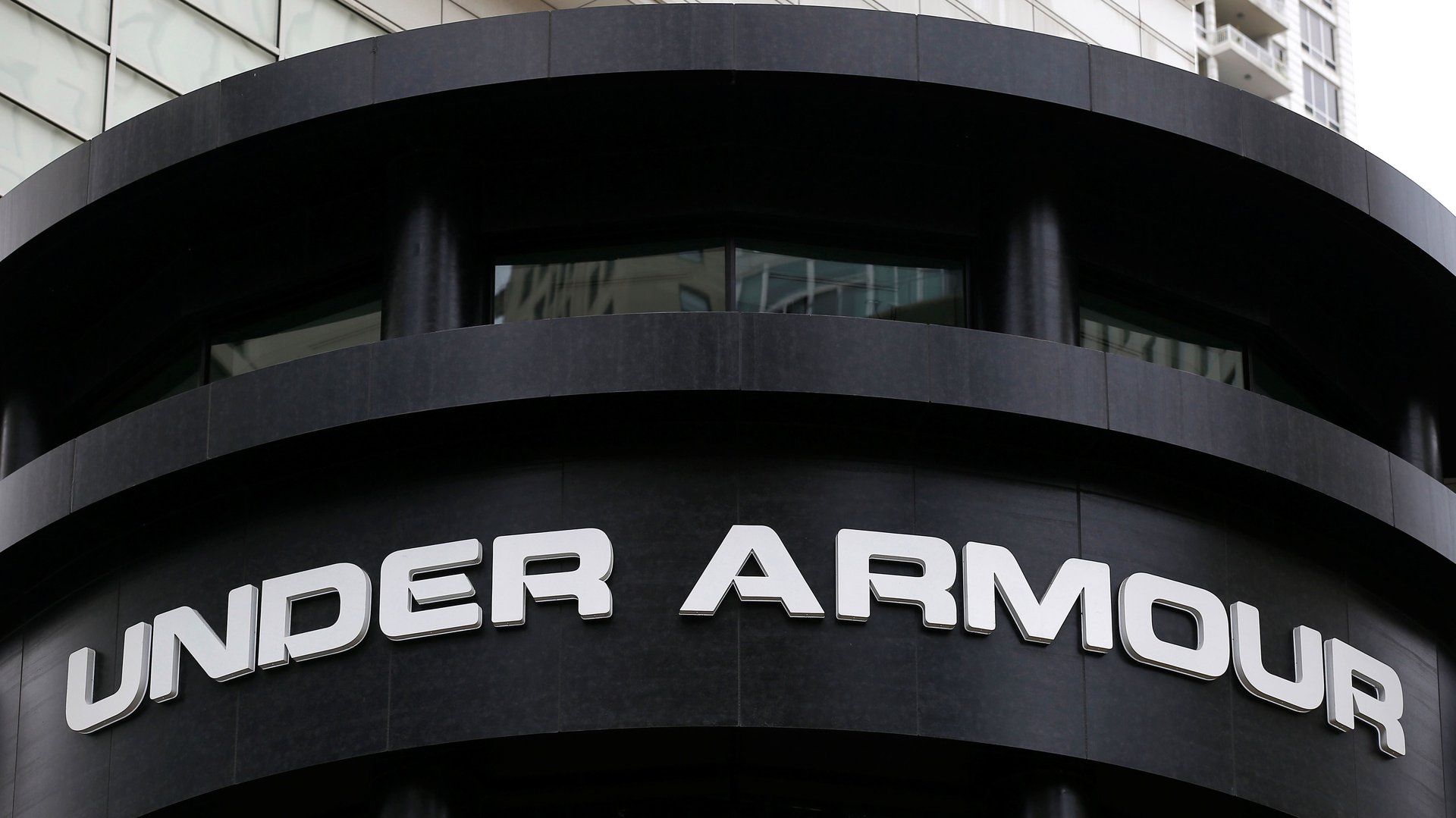Under Armour reimbursed employees for visits to strip clubs until early 2018
Under Armour is doing its best to give Nike a run for its money, and not just in footwear sales. Roughly eight months after Nike’s senior management team was upended by complaints about the treatment of female employees, the Wall Street Journal has investigated Under Armour (paywall) and uncovered a culture that can charitably be described as demeaning to women.


Under Armour is doing its best to give Nike a run for its money, and not just in footwear sales. Roughly eight months after Nike’s senior management team was upended by complaints about the treatment of female employees, the Wall Street Journal has investigated Under Armour (paywall) and uncovered a culture that can charitably be described as demeaning to women.
Reimbursable business trips to strip clubs and an annual party for VIPs featuring young female staff hand-selected by event managers were among the policies and practices uncovered in the Journal’s reporting. In interviews with more than a dozen current and former employees and executives, the paper also heard complaints that male executives behaved inappropriately toward female subordinates at times, and that some women felt they didn’t have the same opportunities to be promoted.
“We have addressed these serious allegations of the past and will continue to address workplace behavior that violates our policies,” a spokesperson for Under Armour said in a statement emailed to Quartz. “Inappropriate behavior that challenges our values or violates our policies is unacceptable—and will not be tolerated. We are committed to providing a respectful and inclusive workplace.”
Which begs the question: Why did it take until 2018 for a major company with around 15,000 employees—nearly half of whom are women—to stop allowing employees to expense trips to strip clubs?
Under Armour, according to the Journal, had been footing the bill for employees and executives at the company to visit strip clubs after some corporate or sports events. These trips could cost several hundred dollars at a time. Occasionally athletes were invited.
It was only in February, four months after the sexual-harassment allegations against Hollywood producer Harvey Weinstein ignited the #MeToo movement, that Under Armour staff got an email from CFO David Bergman announcing the company would no longer reimburse staff for certain expenses, including gambling, limousine services, and strip clubs.
Under Armour told the Journal that the change in policy ended a “legacy issue” and that “use of company funds for adult entertainment is not tolerated.” Founder and CEO Kevin Plank said employees deserve a respectful environment. “We can and will do better,” he stated.
Trips to strip clubs were just one egregious part of a culture that was often uncomfortable to women. Former employees told the Journal that event managers would invite young female staff to an exclusive party held each year at Plank’s Maryland horse farm. The main guests were executives, athletes, and other VIPs. The young women who joined them received invitations based on their attractiveness. Event managers had a nickname for the practice, too: “stocking the pond.” Some of the guests at last year’s party, according to the Journal, “said they were uncomfortable because the company had brought in go-go dancers wearing cutoff shorts and midriff tops.”
Under Armour told the Journal that this depiction misrepresented the “tasteful nature” of the annual event, which included spouses, partners, and others. Plank did not hold the event this year.
The problems at Under Armour sound like many of the stories that have come out since the #MeToo movement began just over a year ago. Nike, Under Armour’s much larger rival, is dealing with the fallout of its own allegedly sexist culture, also reported by the Journal. It came to light after a secret survey passed around by women at the company documenting the sexist behavior they faced came to the attention of CEO Mark Parker. It has so far resulted in an executive shakeup that has seen top employees resign, including Trevor Edwards, who was widely seen as Parker’s eventual successor.
Under Armour has not announced any departures tied to these new allegations. But beyond any pressure from the public and from customers, it could also face pressure from some of its sponsored athletes, who have not been shy about voicing any disapproval they have felt in the past.
Editor’s note: A previous version of this story indicated that Under Armour CEO Kevin Plank was among the executives to conduct and expense business visits to strip clubs, based on the Wall Street Journal’s initial reporting. Under Armour says Plank didn’t conduct business or spend corporate funds at strip clubs. Our article has been updated to reflect that information.